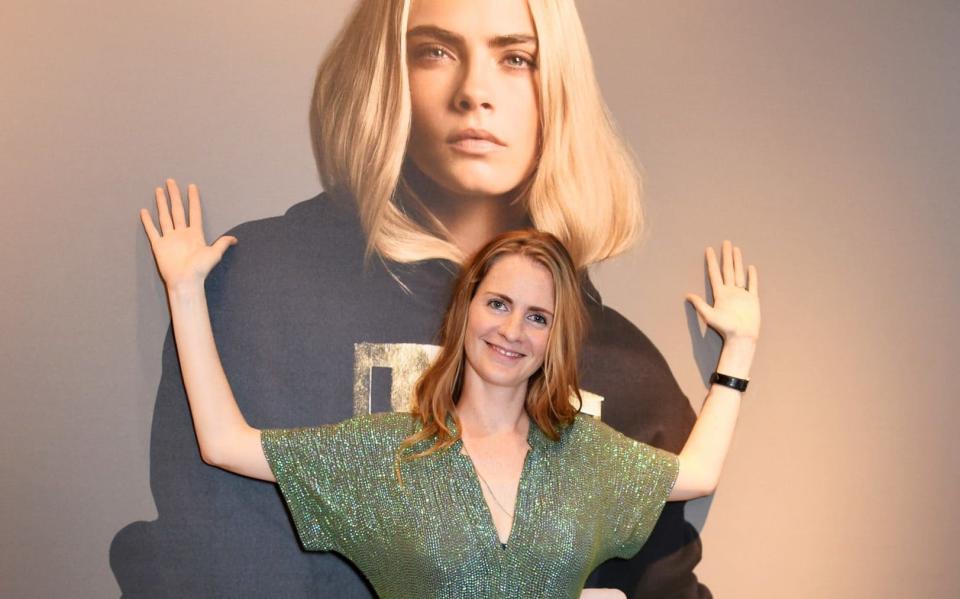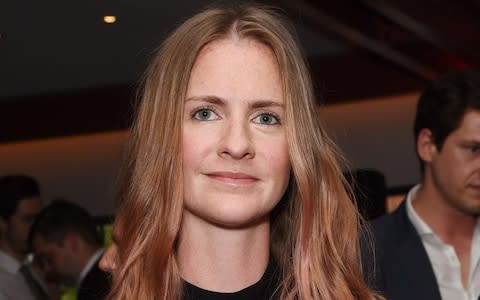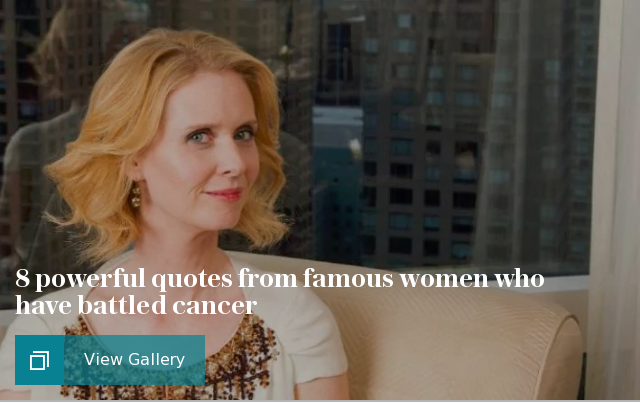Chloe Delevingne: how a gynae cancer scare led me to campaign for 'lady gardens'

Chloe Delevingne is a mum on a mission: to change the future of female cancers.
It all started just over ten years ago, when Delevingne was at university studying biomedical science and tumour biology. "I actually completed a dissertation on cervical cancer and the HPV virus," she tells me. "At 21 I started to have irregular bleeding and abdominal pains, to name a few symptoms. Luckily, I recognised these as being possible symptoms of cervical cancer, so I went to a GP and requested a smear test.
"It showed that I had precancerous cells and I had to have a LLETZ procedure (large loop excision of the transformation zone) to remove the bad cells."
Delevingne speaks matter-of-factly about the procedure – but that's not to underplay the seriousness of what was happening. "Without that diagnosis, I wouldn’t have my babies," she has said previously. "I might not even be here talking to you right now."

Her frank discussion of the topic speaks of her determination to educate other women about the symptoms and dangers of gynae cancer – an umbrella term that includes cancer of the ovary, cervix, vulva and vagina. 20,000 women are diagnosed with gynae cancer in the UK every year. Of these, more than 7,700 women will die – a startling mortality rate of 37pc.
Of course we don’t call our vaginas our lady gardens – but you have to start the conversation somehow
Mika Simmons
Delevingne knows how fortunate she was to recognise her symptoms early: "I consider myself very lucky. If I had waited and only got the smear test at the advised age, then I may not have been."
Delevingne has since joined forces with friends Mika Simmons and Tamara Beckwith, among other women who have been affected or have lost loved ones, to co-found the Lady Garden Campaign – with the aim of sparking debate and raising funds for better treatment of gynaecological cancers. Next month, the campaign will launch its third fashion collection, featuring new T-shirts personalised by the likes of Naomi Campbell and Suki Waterhouse. The items will hit the shelves in Selfridges on 5 October.
A post shared by LADY GARDEN CAMPAIGN (@gynaecancerfund) on Dec 8, 2016 at 6:52am PST
One of the Lady Garden Campaign's primary concerns is to talk about gynae cancer openly, and to unpick some of the embarrassment women commonly feel around the disease. "I lost my mum to ovarian cancer," Simmons tells me candidly. "She was diagnosed when I was 26. She was 53, and she died nine months later. After that, I kept hearing the same thing over and over again: that someone’s mum or sister hadn’t known the symptoms, was perhaps nervous or embarrassed, and was diagnosed too late."
Simmons says she encounters the same story too frequently – "that someone had gone to the doctor’s too late, and they already had a cancer the size of a football or a rugby ball – I’ve heard all of those expressions used – and if they’d gone sooner, they may have responded better to treatment. If you’re diagnosed at stage 4, essentially, it will take a miracle for you to survive."
A post shared by M I K A S I M M O N S (@missmikasimmons) on Sep 9, 2016 at 1:47am PDT
Similarly, Beckwith lost her mother to endometrial cancer. "With Tamara’s mum, it was exactly the same story, and it was so sad to hear," says Simmons. "She just didn’t go to the doctors."
So far, the campaign seems to be working, and the trio are rightly proud of the effect it is having. "Chloe and I had one friend who was too scared to go for a smear, and on the back of the Lady Garden Campaign she went for it and found out that she had pre-cancerous cervical cells," Simmons says. "So I do think we’re saving lives with the campaign. I feel really strongly that it’s succeeding in taking the stigma away."
However, the reaction towards the campaign hasn't all been entirely rosy for the Lady Garden campaigners. "We had a bit of backlash at the beginning where a couple of feminists – and I do consider myself to be a feminist – said 'why are you degrading a woman’s gynae area by calling it a lady garden?'" Simmons admits. "Of course we don’t call our vaginas our lady gardens – of course we don’t – but you have to start the conversation somehow. On Instagram we got quite a lot of trolls saying we were undermining women, but last year we didn’t get any of those."

Meanwhile, recent research by gynae cancer charity The Eve Appeal to mark this September's Gynaecological Cancer Awareness Month, revealed that one in two men "can't find the vagina" – and a quarter of 18 to 24-year-old men know nothing about gynae health issues; nor do they feel the need to find out. It's a damning indictment of awareness around the cancers, as men are considered a useful line of defence: by spotting a change in their partner's vagina (for example lumps or discharge that smells), they can help play a role in the early detection of the disease.
"It’s so important that men feel they can talk about it," says Simmons. "My brother lost his mum too. It’s key. In a funny way, it’s men that stop us talking. It’s not their fault, but we’re shy around men – but they’re losing their mums, sisters and aunts to these cancers for no reason. I also think the more men talk about it, the braver we will be. Men have bravado – so why not women too?"
"This campaign is about getting women to recognise their own bodies, to not be embarrassed, and to learn about the symptoms of gynaecological cancer," adds Delevingne. "It's about empowering women, and also opening it up to men so they too are not embarrassed, and can hopefully be a bit more understanding and supportive.
"There are so many unnecessary deaths related to gynaecological cancers and one of the keys to reducing them is talking about it."


 Yahoo News
Yahoo News 